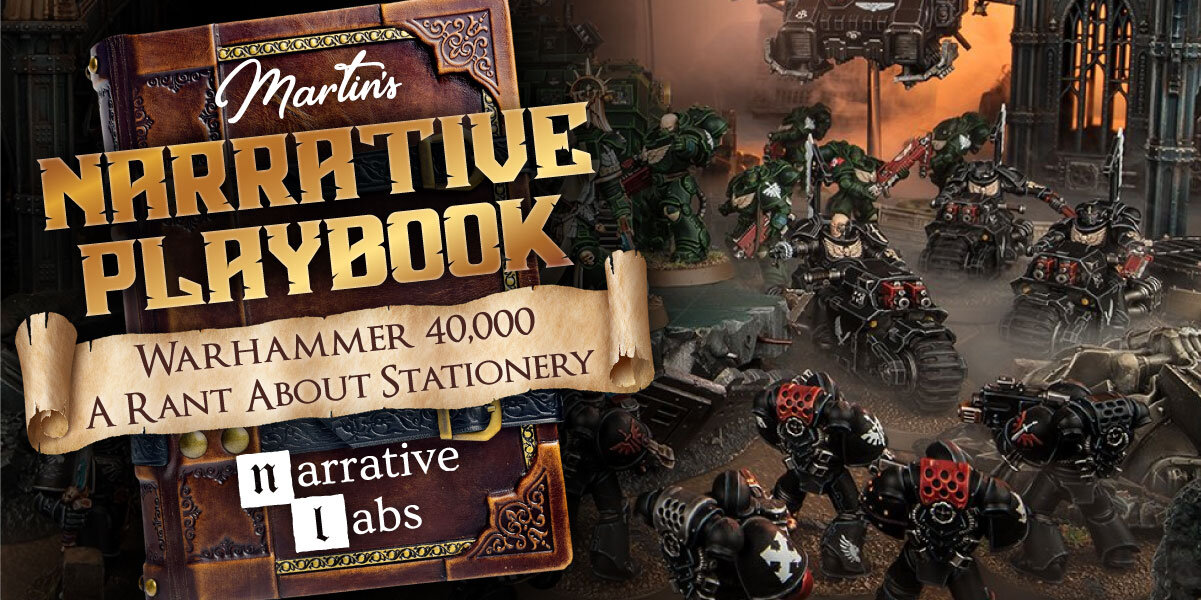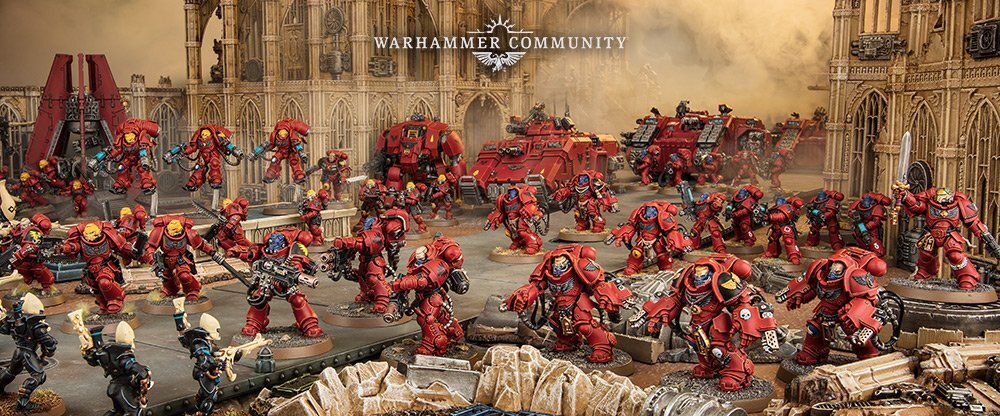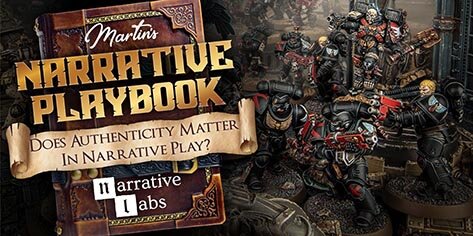Warhammer 40,000 - A Rant About Stationery
/Narrative Playbook is a regular column written by Martin from Narrative Labs, taking a look at the many and varied aspects of narrative play in the many worlds of Warhammer. This week Martin takes a bit of a left-turn with some potentially controversial thoughts regarding pens. Check out Narrative Labs on Twitch, Twitter and Facebook for the latest streaming times, and for some fantastic interactive narrative gaming (with no pens).
This is a bit of a diversion from the usual content of these articles as it’s only partially focused on narrative play. I hope this doesn’t turn into a rant, but it might well be a bit controversial because there’s something I need to get off my chest.
9th edition Warhammer 40,000 has been out for over 6 months now, but the current global pandemic has inevitable meant that – for some – it hasn’t really had a chance to become properly embedded. Many of us would like to have played a lot more games by now, but circumstances haven’t allowed that to happen. I’ve loved the remote games we’ve been able to play on Narrative Labs and look forward to more in-person games in the future, when circumstances allow.
It’s worth saying at the start that there are lots of positives that have come from the new rule set. The new terrain rules are great in my opinion, and I enjoy the Theatre of War rules that help enhance narrative games by adding more atmosphere. I particularly like that there has been an effort to align the rules with the lore of the game – giving all space marines an extra wound, limiting which Necron characters can be the warlord and changing it so that many aura abilities don’t affect the model generating the aura are all examples of rules that have helped my narrative immersion.
Crusade deserves a special mention - it represents a phenomenal step forward for narrative play. Being able to take a force and build up stories through its battles, upgrades and battle-scars (something that’s often missing from narrative rule sets) is just an amazing concept and has been very well executed. It’s great to see that this rule set continues to be supported in supplements, White Dwarf articles and codexes - which I feel have all been very matched play focused for in previous editions of 40K.
However, I have a question that’s been on my mind since I started playing 9th edition;
What happened to casual play?
If you look back at the previous edition of 40K there were lots of ways to play on a casual basis – by which I mean a way to agree a points or power level limit with your opponent, bring your army down to the local gaming centre / store / garage, quickly set up a mission, roll some dice and have a lot of fun. For those who preferred matched play the Eternal War missions were all straightforward and self-contained, and of course there was Maelstrom of War where you could just shuffle your deck of cards and kick off. For us narrative players, most of the scenarios were self-contained, and while some did involve a bit more planning you could just turn up with an army and pick out a fun scenario to play.
In the currently published 9th edition rules, aside from Open War you can’t play a game of Warhammer 40,000 without two tools that your previously didn’t need to bring with you.
What tools am I referring to?
A pen and paper!
Take a moment to think about that – the 9th edition rules for narrative and matched play all require you to have a pen and paper or equivalent tools to play!
The only narrative play rules published are Crusade, and to play Crusade you need to bring along your Crusade roster and unit cards to note down your agendas and track them throughout the game. You need to note down every unit wiped out and who destroyed it. After the game you roll all your upgrades and battle scars, which again you need to write down.
In matched play you have a number of secondary objectives – you need to write down which ones you choose and keep a separate score for each, because there’s a maximum you can score for each one. You also have the primary objectives which need to be recorded as a separate total because there’s a maximum score for this too. Even the new Maelstrom of War rules in the recent White Dwarf still require you to keep track of your tactical objectives, and the difference in points between each objective means it’s still not really a casual gaming experience!
You can’t play either of these two methods of play without a pen and paper or some equivalent tool to keep track of various elements. While previously you could make do with a pair of dice or card dial to keep track of command points and victory points, this is no longer enough.
Now it’s worth saying that, to a certain extent what I’m saying is rubbish. If you don’t want to play a game that involves these exciting new tools you don’t have to. You can play a matched play game without secondaries. You can play a Crusade mission without agendas and Crusade forces (I’ve done this a few times and I have to say it’s great fun). You can break out the Open War deck and deal a scenario. You can also go back to 8th edition scenarios and play them using 9th edition rules.
However, most of these will either involve modifying the 9th edition rules or going back to a previous edition’s rule set. For players whose first introduction to the amazing Warhammer 40,000 game is the current rules, most of these options aren’t readily available to them.
Maybe it’s unfair to say that the requirement to have a pen and paper means the game has become more serious, but I do find it bothers me. Very often I just want to meet up with friends for a casual game (when such a thing is possible) and I find that the nature of playing in the latest edition has created a bit of a barrier to doing this.
I’ve always been one to embrace the new – whenever a new edition of 40K, Age of Sigmar or any other game that I love comes out I put away the old one and dive into the new, enjoying all the tweaks and changes that create an exciting new experience. And I’ve done this with the new edition of 40K too – I noted at the start of the article just a few of the many things I love about the new rules. Yet, when it comes to actually playing a game, I find that I really am put off by needing to keep track of everything.
Is it me? Have I just reached that age where I don’t like change anymore (oh no, by the Star Children, please let that not be true)? Or is it reasonable to want to enjoy a good game of 40K without having to take notes as if it’s a meeting at the office?
It’s worth finishing by saying that I have, in general, really enjoyed the new edition. I have had some immensely entertaining games, where the dice have done some crazy things that have left my sides sore from laughing. At one point my opponent and I wanted to draw a bullet-hole outline of a model on a crate because I couldn’t hit it no matter how many dice I rolled. It’s a great update for the game, but I still have to ask why there’s no longer any real support for casual play?
So what do you think? Is the game better for all the mechanics that require you to make notes, or does it need a little bit of casual fun injected back into it?

















